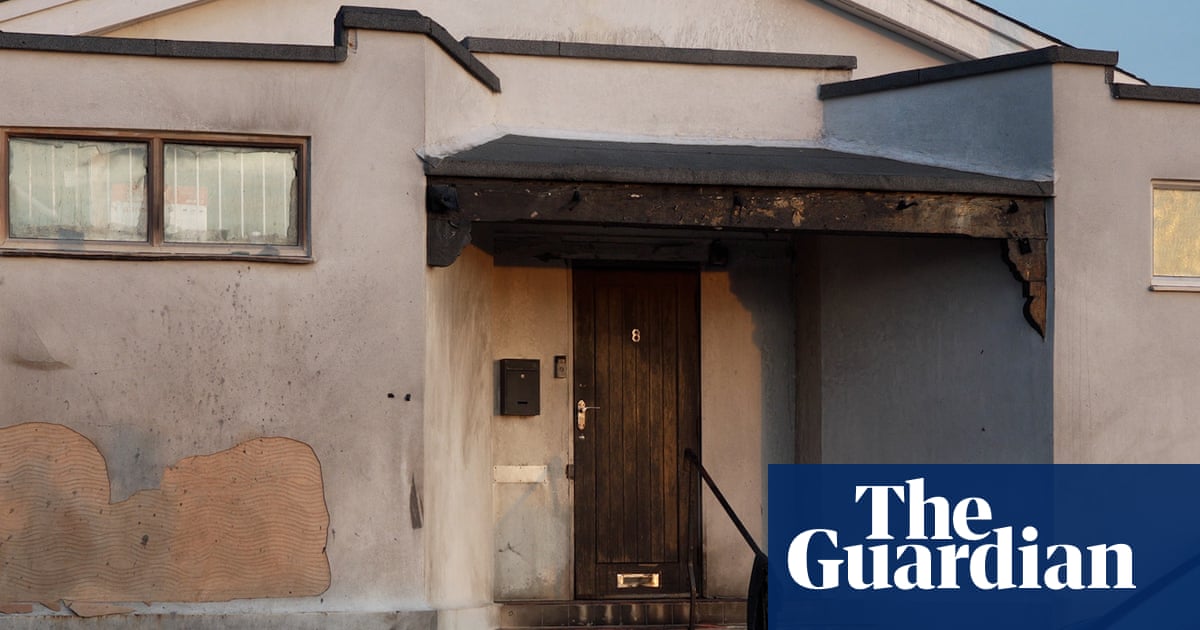It was a bold, ambitious and controversial idea: close Cardiff and Bristol airports and build an international facility on an artificial island. So aspirational, in fact, that the Severnside plan was roundly rejected as far-fetched when it was unveiled more than 20 years ago.
But now the proposal does not seem nearly as bizarre as a result of the climate crisis and a long-running legal battle between the two airports.
Bristol airport announced earlier this summer that it was launching legal action against the Welsh government, which owns Cardiff airport, over a £205m subsidy package to be delivered over the next decade.
A spokesperson for Bristol airport said it welcomed competition, but “on a level playing field to avoid market distortions”. The case, which is expected to be heard by the competition appeal tribunal in early 2026, argues the funding would exceed Cardiff airport’s annual turnover year on year, and that “no other airport in the UK has ever received anything close to this level of public subsidy”.
Bristol airport said in an open letter that it had repeatedly asked for meetings over the issue but the Welsh government had failed to “engage meaningfully with us and other stakeholders”.
Cardiff airport referred the Guardian’s questions to the Welsh government, which declined to comment, citing the ongoing court action.
The feud has simmered since 2013, when the Welsh government stepped in to buy Cardiff airport for £52m, well above the market value, after passenger numbers slumped as a result of the withdrawal of budget airline Bmibaby two years earlier.
It was an unusual move in the UK, where almost all airports are privately owned, but the Welsh government saw strategic value in the capital city having its own airport. The purchase was also viewed as important for future economic growth.
So far, however, the airport has been unable to turn a profit, and passenger numbers have not recovered from the Covid pandemic: 881,000 customers passed through the terminal in 2024, compared with a peak of 2 million in 2007.
Cardiff airport has already received close to £200m in bailouts since nationalisation. Its fortunes were expected to change in 2017, when Qatar Airways announced it would begin daily long-haul flights from Cardiff to Doha, but the route was cancelled in 2020 and has not restarted.
In another bad omen, the airport’s chief executive, Spencer Birns, quit in March, a month before the new £205m subsidy package was announced.
“Like many UK airports, Cardiff was formerly an RAF base, so it’s always been in the wrong place for commercial use,” said Mark Barry, a professor at Cardiff University. “Bristol’s catchment area is much bigger and much wealthier, airlines are always going to prefer it. No one in their right mind would buy Cardiff airport.
“That said, there are lots of other arguments for it – jobs in the area, strategic value. Rail and bus travel in Wales is subsidised to the tune of about £400m a year, so taxpayer money spent on the airport is not massive, looked at that way.”
Bristol airport bills itself as a major employer injecting about £2bn into the economies of south-west England and south Wales economy. It has 127 destinations compared with Cardiff’s 34, and dozens more flights a day, around one in five of last year’s 8.6 million passengers travelled to or from south Wales.
Construction work to expand and improve the terminal is ongoing. Bristol airport is also planning to increase its passenger cap from 12 to 15 million a year by the late 2030s in an attempt to stop customers from travelling to London – a proposal that has attracted fierce criticism from the Green party, which leads Bristol city council.
“In the teeth of a worsening climate emergency, it’s frankly staggering that Bristol airport is yet again planning to expand,” councillor Emma Edwards said.
“The last thing our city and the region needs is yet more carbon emissions from flights, more traffic congestion, more noise and worsening air quality.”
A UK government white paper in 2003 examining the next 30 years of air travel proposed closing Cardiff and Bristol, and the construction of a Severnside facility. Using an artificial island runway in the Bristol channel, it would serve both catchment areas.
In a ranking of the UK’s bigger airports last month by the Daily Telegraph, both Bristol and Cardiff fared badly, losing many points because they lacked train connections. Bristol came in at 27th and Cardiff plum last at 30th.
“The bigger question here is short-haul flights in general and whether we should be expanding them, or encouraging people to take them,” Barry said. “This part of the UK simply doesn’t need two airports.”

 1 month ago
57
1 month ago
57

















































